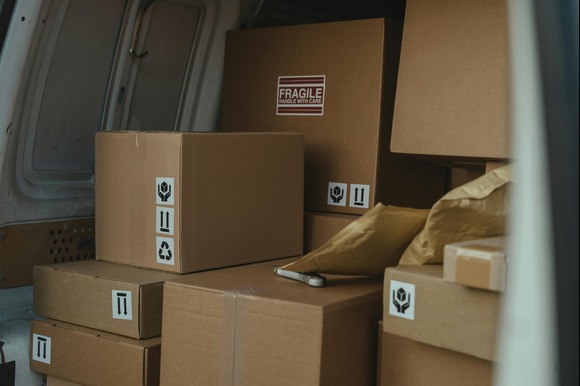China: The value of small, tax-exempt parcels shipped from China to the UK has more than doubled in the past year, fuelling concerns among British retailers about unfair competition and lost tax revenue.
Exclusive figures obtained by the BBC show that these low-value packages—worth £135 or less and therefore not subject to import duties—rose from £1.3bn in 2023-24 to around £3bn in the latest financial year.
Industry analysts say the sharp increase is being driven largely by Chinese e-commerce platforms such as Shein and Temu, whose cheap products have rapidly gained popularity among British online shoppers.
Chinese giants dominate low-value imports
The £3bn in shipments from China accounted for 51% of all low-value parcels arriving in the UK last year, up from 35% the previous year, according to HM Revenue & Customs (HMRC) data obtained under a Freedom of Information request.
Retailers say this influx is undermining local businesses. “It’s affecting our customers as well. They’re not ordering from us because they know their customers can get it cheaper online,” said Katerina Buchy, director of Sheffield-based wholesaler Ancient Wisdom, which employs over 100 staff.
“I think the government should not allow these companies to export such high quantities of products under these rules because it’s just ridiculous. I’d like to know how much they are losing in taxes. We pay taxes,” she added.
Temu and Shein, which sell clothing, electronics, toys and homeware at bargain prices, have expanded rapidly in the UK. Shein, founded in China but now headquartered in Singapore, recorded soaring profits last year and has attempted to list on both the New York and London stock exchanges. Both firms have also faced scrutiny from MPs over labour practices in their supply chains.
Retail analyst Natalie Berg of NBK Retail said the timing of the surge was no coincidence. “They’ve gone from niche newcomers to retail powerhouses in a very short period of time,” she said. But she cautioned that scrapping the exemption could hurt low-income shoppers and small businesses that rely on the rule to import goods. “This is a loophole that needs to be plugged, but the government must ensure that any changes don’t ultimately harm consumers or small businesses,” she added.
Government review under pressure
The Treasury launched a review into the customs treatment of low-value imports in April after lobbying by large UK retailers such as Next and Sainsbury’s. These firms argue that the exemption enables foreign competitors to undercut their prices while also exposing shoppers to poorly regulated goods.
The British Retail Consortium (BRC) has echoed these concerns, calling the imports “a significant and growing threat” to investment in UK High Streets. Its food and sustainability director, Andrew Opie, said consumers also risk being sold “unregulated, potentially unsafe products” because the items bypass many of the usual customs checks.
A spokesperson for Temu said the firm aims to have at least half of its UK sellers based in Britain by the end of the year, describing the approach as a way to help consumers access affordable products while offering domestic businesses a “low-cost channel” for growth.
Shein said its “on-demand” production model allowed it to cut waste and reduce costs, savings which are then passed on to customers. Vendors selling on the platform are required to comply with Shein’s safety standards and code of conduct, the company added.
International comparisons
Other major economies have already moved to curb similar loopholes. The US has scrapped its “de minimis” exemption on low-value goods from China and will apply the rule globally from Friday. Previously, US shoppers could import items worth up to $800 (£596) without tariffs.
The European Union has also announced new measures, introducing a flat €2 (£1.70) fee on parcels worth €150 (£129) or less entering the bloc.
In the UK, however, the true number of low-value parcels arriving from China remains unclear. HMRC does not track individual items but records the number of customs declarations, which may cover multiple products. In 2024-25, around 281,000 declarations were filed for goods worth £135 or less from China—about 12% of the total.
Treasury stance
A Treasury spokesperson confirmed that Chancellor Rachel Reeves’ review of the exemption is ongoing and will be published “in due course.”
“We are a pro-business government that is backing Britain’s High Streets by protecting and extending business rates relief that would have ended without our action, permanently lowering rates for retailers from next year, and capping corporation tax at the lowest level in the G7 to encourage investment and growth,” the spokesperson said.






